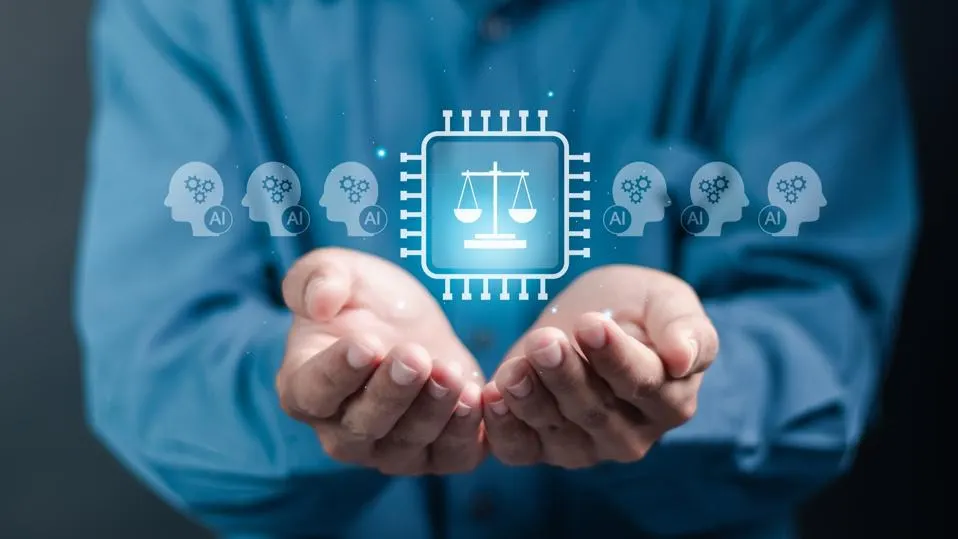6 Roadblocks Stopping Web3 And The Metaverse Becoming A Reality
5 September 2023
With the emergence of the metaverse and web3 technologies, it’s clear that the next evolution of the internet is already underway. This is what I mean when I talk about the “future internet” – the next iteration of the internet, characterized by immersive virtual metaverse worlds (such as Fortnite or Meta’s Horizon Worlds) and decentralized web3 technologies (think crypto, blockchain and NFTs).

This future internet will deliver a much more engaging, enriching, and realistic online experience. But there are many hurdles to overcome on this road towards a more immersive, decentralized future internet. Let’s explore some of the biggest challenges and risks that lie ahead.
1. The Legal And Regulatory Hurdles Are Massive
No doubt about it, technology is advancing faster than our legal systems can cope with, which leaves a lot of gray areas that can be exploited. At the moment, we don't have clear laws on what's acceptable and unacceptable in virtual environments or even which jurisdictions they come under. If I’m physically at home in England, but I’m exploring a virtual metaverse environment hosted by a Chinese provider, will I be subject to English laws or Chinese?
And what happens if someone commits what we would normally consider a crime in a virtual environment? Will there be legal consequences? Issues like this are already occurring; in 2022, a researcher reported that her avatar was sexually assaulted within an hour of entering Meta’s Horizon Worlds. (To be clear, Horizon Worlds maintains a virtual four-foot "personal boundary" around avatars that prevents non-friends from venturing too close, but in this case, other members had convinced the researcher to disable the setting.)
The bottom line, as more people spend time in realistic virtual worlds, we need our legal systems to catch up fast.
2. Privacy Will Be A Key Concern
The metaverse also brings new privacy challenges because all this immersive technology will be even better at tracking our actions and intentions. VR headsets, for example, include eye-tracking technology – which means, in the future, marketers and advertisers could potentially see from our headset data exactly where we're looking in our immersive experience and, in the process, understand an awful lot about our preferences. Basically, huge amounts of data could be collected by companies and used for marketing and other purposes – and not everyone will be happy about this. We need updated privacy regulations that set clear boundaries on what constitutes a fair use of personal data in metaverse environments.
3. We Can’t Ignore The Energy Cost
Looking at the technology itself, energy is the big elephant in the room. Blockchain, crypto, creating realistic simulated worlds … all this requires huge computing power. Bitcoin alone consumes more electricity in a year than several countries, including Norway and Hungary.
There is hope on the horizon. Transitioning to proof-of-stake blockchain systems will dramatically reduce energy consumption (Ethereum’s switch to proof-of-stake is estimated to reduce the energy consumption of Ethereum tokens and blockchains by 99.95 percent).
The problem is we also know that all this tech needs to scale up significantly in the future. Especially blockchain. The number of transactions that can currently be done on a platform like Ethereum is much smaller than the number of transactions that can be processed by providers like Visa or Mastercard (because blockchain transactions take longer to process). So, if blockchain is going to power more of our online transactions, the technology will have to scale up drastically. It’s vital this scaling up is matched by investment in green energy.
4. Interoperability Is A Major Tech Hurdle
The metaverse will comprise countless virtual worlds, and – in theory, at least – we should be able to switch seamlessly from one experience to another. Yet the current metaverse and web3 platforms are all pretty much-walled gardens – meaning, if you buy something in one platform, you can’t use it or trade it outside of that platform. If you buy a $4,000 Gucci-branded bag for your Roblox avatar – as someone did in 2021 – you can’t take it with you to another platform. For now, it has to stay in Roblox, which is pretty daft. We have a long way to go before the metaverse becomes the persistent, shared virtual universe that Mark Zuckerberg has in mind.
5. Infrastructure Challenges Lie Ahead
All this technology is going to require huge network upgrades – causing some thundering headaches for cloud storage providers and telecom companies. We’ll need amazing 5G or even 6G connectivity everywhere if we’re to be constantly hooked up to the metaverse. And it’s not yet clear who’s going to pay for all these upgrades. We’ll also need devices (phones, VR headsets, smart glasses) to become much more powerful so they can handle more of the computing load themselves rather than relying on other networks (what's known as edge computing).
In other words, the hardware and network demands will be huge compared to today, and this presents both challenges and opportunities for telecom companies, cloud providers and hardware manufacturers like Apple and Samsung.
6. And On Top Of All That, There’s The Future Internet Skills Shortage
There’s a massive skills shortage around metaverse and web3 technologies. Most universities and schools aren’t even thinking about teaching this stuff yet, which leaves organizations struggling to recruit the talent they desperately need. It will get better over time, but it’s certainly a big challenge for organizations to overcome in the short and medium term.
It’s clear there are some enormous challenges and risks surrounding the future internet. But there’s no doubt in my mind that the metaverse and web3 have the potential to reimagine the internet and make it a better, more engaging place.
Related Articles
5 AI Prompts That Will Transform Your Self-Improvement Overnight
By now, “smart” versions exist of just about every home appliance, gadget and gizmos we can think of. However, manufacturers continue[...]
5 Employee Experience Mistakes Companies Will Make This Year
By now, “smart” versions exist of just about every home appliance, gadget and gizmos we can think of. However, manufacturers continue[...]
The UK’s Bold AI Plan: A Blueprint For Leading The Future Of Technology
By now, “smart” versions exist of just about every home appliance, gadget and gizmos we can think of. However, manufacturers continue[...]
Will AI Solve The World’s Inequality Problem – Or Make It Worse?
We are standing on the cusp of a new technological revolution. AI is increasingly permeating every aspect of our lives, with intelligent machines transforming the way we live and work.[...]
How You Become Irreplaceable In The Age Of AI
In a world where artificial intelligence is rapidly advancing, many of us are left wondering: Will AI take our jobs?[...]
Why Apple Intelligence Sets A New Gold Standard For AI Privacy
In the rapidly evolving world of artificial intelligence, privacy concerns have become a hot-button issue.[...]
Sign up to Stay in Touch!
Bernard Marr is a world-renowned futurist, influencer and thought leader in the fields of business and technology, with a passion for using technology for the good of humanity.
He is a best-selling author of over 20 books, writes a regular column for Forbes and advises and coaches many of the world’s best-known organisations.
He has a combined following of 4 million people across his social media channels and newsletters and was ranked by LinkedIn as one of the top 5 business influencers in the world.
Bernard’s latest book is ‘Generative AI in Practice’.










Social Media